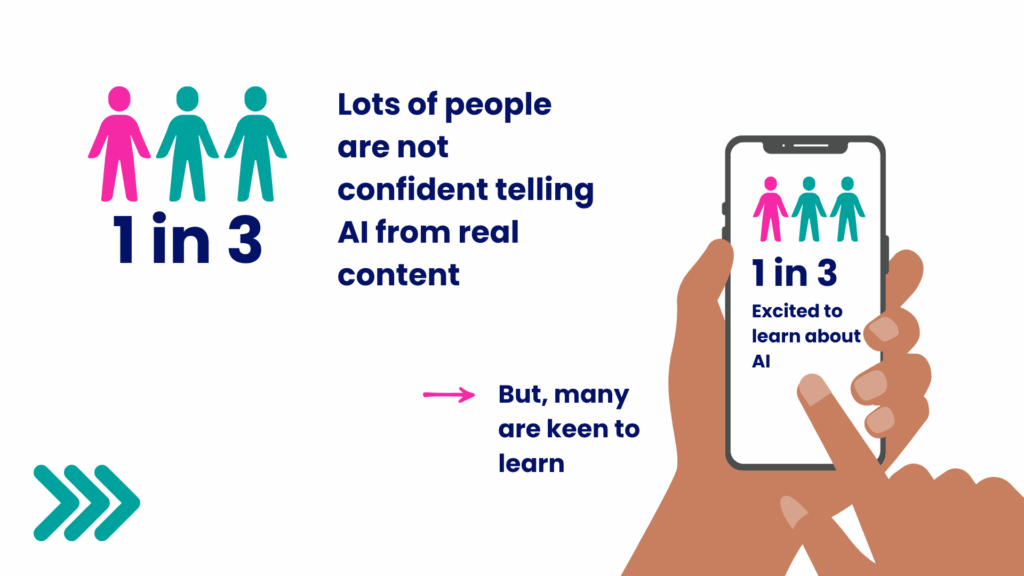Good Things Australia’s latest research highlights Australians’ attitudes toward getting online in 2025.
We surveyed 2,012 adults living in Australia to understand the barriers they face when accessing and using technology and the internet. With the rapid emergence of new technologies, we also investigated how they view and engage with AI.
Now in its third year, the Australian Attitudes to Getting Online research provides insights into changing consumer behaviours and attitudes, highlighting opportunities for Good Things and the wider community to close the digital divide so no one is left behind.






Keeping up with tech
Keeping up with rapidly changing tech remains a key issue for many. More than 1 in 10 Australians said they feel overwhelmed by technology and unsure where to start.
1 in 4 people find the variety of technology available to be overwhelming.
This rose to 30% of women, compared to 20% of men, and above 30% of people aged over 55 years, who were born overseas, have disability, or are grandparents or carers.
The survey asked respondents to select from a list of ten essential digital skills any activities they find challenging. The top digital skill Australians struggle with is using AI tools or apps, at nearly one in four people (23%). The next most common digital skills that people struggle with were using government services (19%) and scanning QR codes (14%).
Attitudes to AI
The research explored contemporary attitudes to Artificial Intelligence (AI).
One in three people said they are unsure how to tell AI generated content from real content. This uncertainty rises to 43% among grandparents, highlighting a possible intergenerational gap in media literacy skills.
Almost one in five said they don’t care about AI and have no plans to use it. This attitude was more common among women, people with disability, grandparents, people living in regional areas, and older adults.
Despite this, many Australians are enthusiastic about AI with one in three saying they are excited to learn about and use AI.
Supporting loved ones
How people support or lean on their loved ones around tech was also explored in the 2025 research.
One in five parents and one in three grandparents said they rely on their children or grandchildren for support.
One in three parents are concerned about how their children use technology and whether they are safe online. Looking from the other direction, 21% of carers and people aged 35–44 said they worry about their parents’ or grandparents’ ability to get online, compared with 14% of people nationally.
Learn more
The research indicated that some people in Australia are struggling to keep up with rapidly changing tech more than others. It illustrates the significant role of families and intergenerational support on attitudes to getting online, as well as people of all ages being impacted by different aspects of digital inclusion — from skills to affordability and access.
Read the full Australian Attitudes to Getting Online 2025 report for more information on the digital divide.